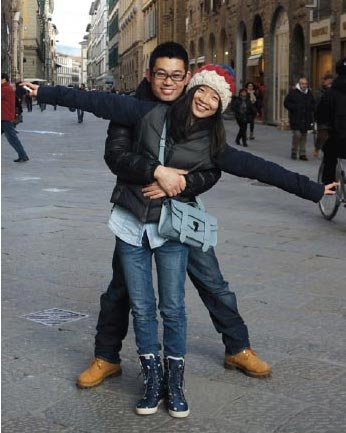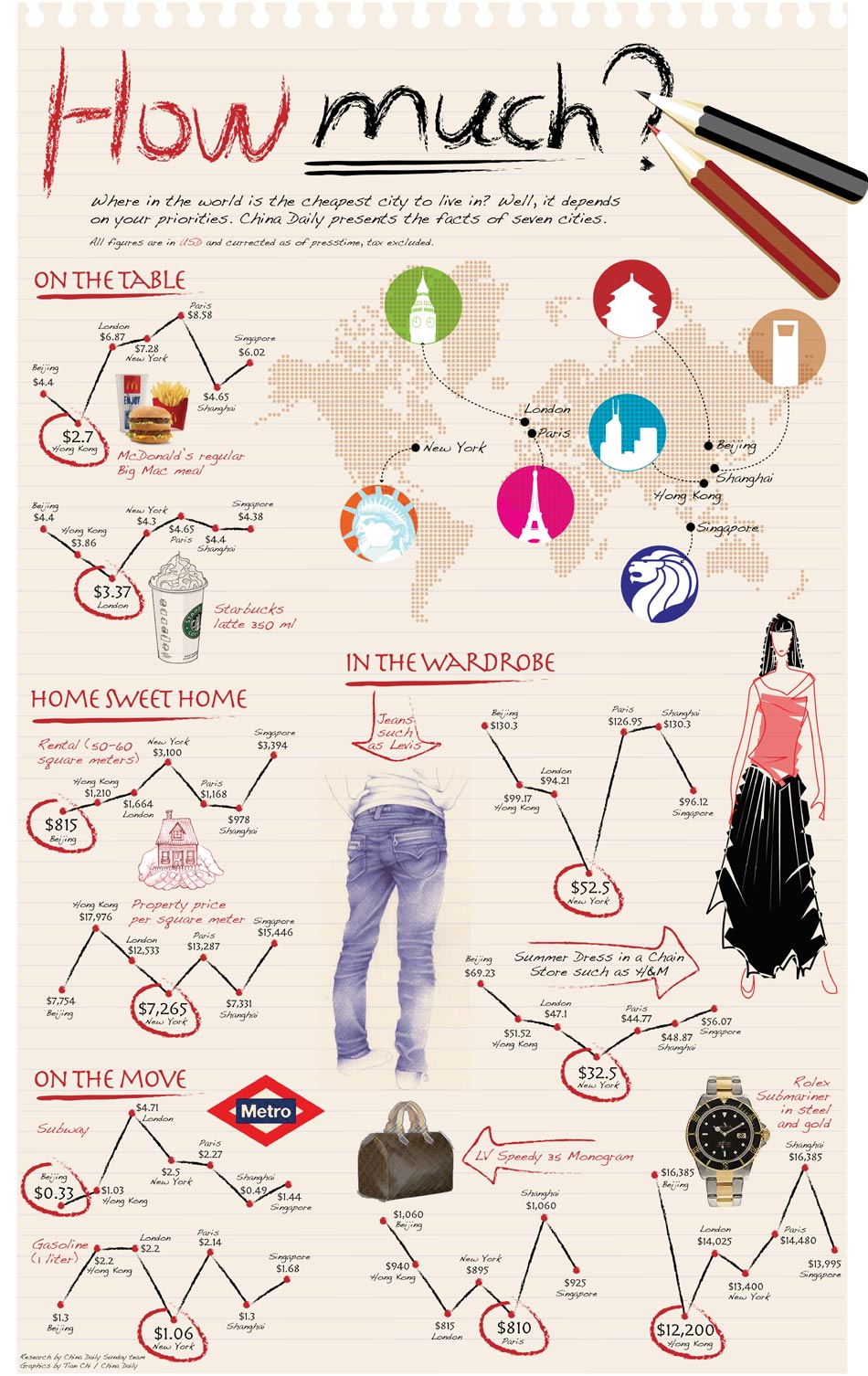








|
Every city has its bright or bad facets and most of us have love-hate relationships with our chosen site of abode, in varying degrees. Our investigative team does a random sampling of interviews in Beijing, Shanghai, Hong Kong, Singapore, New York, London and Paris, to find out the ups and downs of daily life in terms of dollars and cents — and come up with some surprising answers. This is neither scientific research nor a report to tell everyone which is the best city to live in, but rather a presentation of what it is like living in these cities and a reflection of its urban psychographics. According the The Economist’s Intelligence Unit, one of the features of the cost-of-living ranking over the last few years has been the rise of many Asian cities offsetting traditionally more costly European locations. In our interviews, we find rising Asian hubs such as Singapore and Hong Kong among the top 20 most expensive cities. In fact, of the world’s 20 most expensive cities, 11 are from Asia. The rest are from the West. A decade ago, it was six Asian cities compared to 10 European cities, with four from the United States. more |

|
| |||
|
Aurelie, a public relations officer at a French multinational company in Paris, is not into high-end designer brands. Instead, she prefers French brands such as Maje and Paule Ka that offers chic, simple and original look at mid-range prices. A Maje dress costs between $197 and $328. Aurelie says she spends about $130 a month on average to keep up a stylish wardrobe. Joseph D'Alessio, a Premier Mortgage Consultant at Hong Kong Shanghai Bank Corporation in New York, also prefers boutiques to international brands because of the tailor-made services. more |
To many mainland Chinese, Western food is still an adventure, a treat for a big date or a weekend brunch with family. Western fast food is not quite in that category, but a McDonald's Big Mac meal (regular price) in Beijing at 27 yuan ($4.40) is not cheap when you can already get two bowls of noodles or three orders of dumplings for the same price. Wei Dongjian, business development manager at a Beijing interior design firm, himself spends only 20 yuan a meal even though his 14,000-yuan monthly take-home pay is almost triple the average salary in the Chinese capital. more |
House ownership tops the list of priority for most people, taking up the biggest share of their wallets. Based on the seven cities surveyed, monthly rental takes up one-third to half of the median pay.? But, the two cities in Chinese mainland — Beijing and Shanghai — stand out in terms of ratio between property prices and income. If Beijing residents save every cent they earn, they will need more than 60 years to pay off their property. In London, that takes half the time. more |
Chen Shaojie from Shanghai owns a 400,000-yuan ($65,240) BMW 320Li. But he chooses to take the subway to and fro from work, which takes up two hours of his time every day. "My wife and I used to have the time for sports such as badminton or jogging before we had our son in 2011. But now, we have to make the best of our time. Daily commute on public transportations is the best exercise," says the 32-year-old. Shanghai subway fares start from 2 yuan for distance below 6 km, increasing gradually by the distance. Among the people China Daily interviewed, subway is their transportation of choice. more |

|
 Wei Dongjian his fiancee Wu Yuanping pose at the street of Florence during their Europe trip early this year. Provided to China Daily |
 Wei Dongjian doesn't look like a man who works nonstop. From his easy smile, you'd never guess he has been working every day this year — except for a week during the Lunar New Year holiday in February. Wei, 30, is business development manager at a Beijing interior design firm, part of an industry that has benefited from the Chinese capital's housing market boom.
The rest of the time, he takes one day off a week. He doesn't mind, since he moved from his native Shandong province to Beijing in 2005 specifically to become his own man.
"I don't think about being tired," Wei says."Since my basic salary isn't much, I need to work hard to earn more." more |
 Luxury goods are notoriously more expensive on the Chinese mainland, and that's why many Chinese consumers do their luxury shopping overseas.
Our seven-city survey finds, to no surprise, that the prices in Beijing and Shanghai are the highest in this category. Louis Vuitton, one of the world's best-known luxury brands, is keenly aware of this pricing challenge. For instance, the French fashion house's Speedy 35 in monogram canvas, one of its most popular handbags, costs the equivalent of $1,060 in both Beijing and Shanghai. In Paris, the bag costs only $810, followed closely by London at $815 and New York City at $895. more
|

